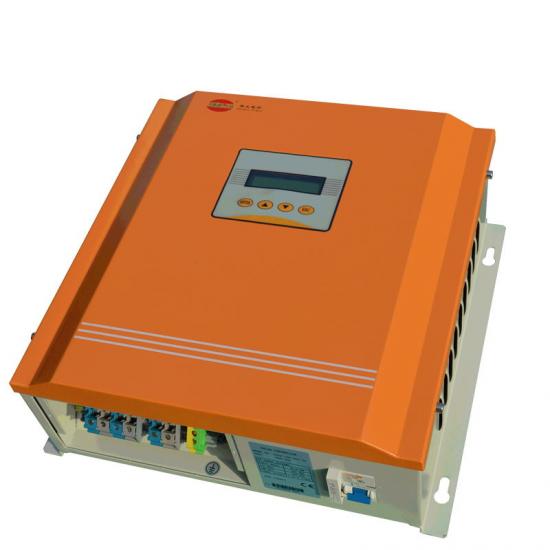Optimizing your battery’s performance requires careful management of both charging and discharging.
A smart charge controller is essential for achieving this balance, as it allows you to tailor the charging and discharging cycles to meet the specific needs of your battery and application.
With a smart charge controller, you can program customized charging and discharging profiles that take into account factors such as temperature, state of charge, and power usage, ensuring that your battery operates within its optimal parameters for extended lifespan and maximum performance.
Monitoring the Battery’s State of Charge (SOC) and State of Health (SOH)
A smart charge controller can continuously monitor the battery’s SOC and SOH to determine the optimal charging and discharging cycles.
A smart charge controller can continuously monitor the SOC and SOH to determine the optimal charging and discharging cycles.
This involves tracking the battery’s capacity, voltage, and temperature, and using this data to adjust the charging and discharging currents accordingly.
By doing so, the smart charge controller can prevent overcharging and over-discharging, which can significantly reduce the battery’s lifespan and performance.
In addition, monitoring the SOC and SOH can help detect any issues with the battery, such as degradation or imbalance, and provide alerts to prevent any potential problems.
By continuously monitoring the battery’s SOC and SOH, you can ensure that your battery is always operating within its optimal parameters, resulting in longer lifespan, better performance, and fewer maintenance needs.
Charging and Discharging Cycles Optimization
Based on the battery’s SOC and SOH, the smart charge controller can optimize the charging and discharging cycles to ensure that the battery is neither overcharged nor over-discharged.
Charging and Discharging Cycles Optimization: The smart charge controller optimizes the charging and discharging cycles of the battery based on its State of Charge (SOC) and State of Health (SOH) to ensure that the battery is neither overcharged nor over-discharged.
The controller monitors the battery’s SOC and SOH in real-time and adjusts the charging and discharging currents accordingly.
During the charging cycle, the controller gradually increases the charging current as the battery’s SOC increases, and gradually decreases the charging current as the battery’s SOC approaches 100%.
Similarly, during the discharging cycle, the controller gradually decreases the discharging current as the battery’s SOC decreases, and gradually increases the discharging current as the battery’s SOC approaches 0%.
By optimizing the charging and discharging cycles in this way, the smart charge controller helps to extend the lifespan of the battery and prevent damage caused by overcharging or over-discharging.
Detecting and Preventing Overcharging
A smart charge controller can detect when the battery is being overcharged and stop the charging process to prevent damage to the battery.
When it comes to safeguarding your battery’s health, a smart charge controller plays a important role in detecting and preventing overcharging.
This critical component can detect when the battery is being overcharged and immediately stop the charging process to prevent any potential damage.
By actively monitoring the voltage and current being fed to the battery, a smart charge controller can detect when the battery is approaching its maximum capacity and adjust the charging parameters accordingly.
This helps to prevent the battery from being overcharged, which can lead to premature aging, reduced capacity, or even complete failure.
With a smart charge controller, you can ensure that your battery is always charged within safe limits, prolonging its lifespan and ensuring optimal performance.
Detecting and Preventing Over-Discharging
Similarly, a smart charge controller can detect when the battery is being over-discharged and stop the discharging process to prevent damage to the battery.
When it comes to maintaining the health and longevity of your batteries, over-discharging is a common issue that can cause significant damage.
However, with the help of a smart charge controller, you can easily detect and prevent over-discharging.
These advanced controllers are equipped with sophisticated monitoring capabilities that continuously track the battery’s state of charge and voltage.
If the battery is being over-discharged, the smart charge controller will detect this and stop the discharging process to prevent any further damage.
This not only helps to extend the life of your batteries, but also ensures that you can rely on them when you need them most.
Some smart charge controllers may also provide features such as battery health reporting and low-voltage cutoffs to further protect your batteries from damage.
By investing in a smart charge controller, you can enjoy peace of mind knowing that your batteries are being properly cared for and protected.
Adaptive Charging and Discharging Rates
A smart charge controller can adjust the charging and discharging rates based on the battery’s SOC and SOH to ensure that the battery is charged and discharged at the optimal rates.
Adaptive Charging and Discharging Rates: A smart charge controller can adjust the charging and discharging rates based on the battery’s State of Charge (SOC) and State of Health (SOH) to ensure that the battery is charged and discharged at the optimal rates.
This feature allows the charge controller to adapt to changing conditions and optimize the battery’s performance.
For example, when the battery is fully discharged, the charge controller can increase the charging rate to quickly bring the battery back up to full capacity.
Conversely, when the battery is nearly fully charged, the charge controller can decrease the charging rate to prevent overcharging and preserve the battery’s health.
Similarly, when the battery is being discharged, the charge controller can adjust the discharging rate based on the SOH to prevent over-discharge and maintain the battery’s optimal performance.
By dynamically adjusting the charging and discharging rates based on the SOC and SOH, a smart charge controller can prolong the battery’s lifespan and ensure that it operates at peak efficiency.
Self-Learning Charging and Discharging Patterns
A smart charge controller can learn the user’s charging and discharging patterns over time and adjust the charging and discharging rates accordingly to ensure maximum efficiency.
Self-Learning Charging and Discharging Patterns: A Smart Charge Controller’s Ultimate Efficiency Booster
One of the most significant advantages of using a smart charge controller is the ability to learn and adapt to the user’s charging and discharging patterns over time.
By analyzing the user’s habits and adjusting the charging and discharging rates accordingly, the smart charge controller can optimize the efficiency of the battery and prolong its lifespan.
For example, if the user tends to charge their battery during off-peak hours when electricity rates are lower, the smart charge controller can learn this pattern and adjust the charging rate accordingly.
Similarly, if the user tends to discharge their battery more rapidly during certain times of the day, the smart charge controller can adjust the discharging rate to ensure that the battery is not overused.
Over time, the smart charge controller can refine its predictions and tailor its charging and discharging rates to the user’s specific needs, ensuring maximum efficiency and prolonging the lifespan of the battery.
With the ability to self-learn and adapt, a smart charge controller is truly a must-have for anyone looking to maximize the potential of their battery and ensure a reliable power source.
Protecting the Battery from Abuse
A smart charge controller can protect the battery from abuse such as over-charging, over-discharging, and high-current discharges that can damage the battery.
Protecting the battery from abuse is a important aspect of ensuring the longevity and optimal performance of your solar power system.
Over-charging, over-discharging, and high-current discharges can all cause damage to the battery, reducing its lifespan and overall efficiency.
For example, over-charging can cause the battery to swell, which can lead to internal plate separation and ultimately result in a premature death of the battery.
Similarly, over-discharging can cause the battery to degrade more quickly, reducing its capacity and ability to store energy.
A smart charge controller can help prevent these types of abuse by monitoring the battery’s state of charge and adjusting the charging and discharging currents accordingly.
By keeping the battery within a safe operating range, a smart charge controller can help extend the lifespan of the battery, reduce the risk of damage, and ensure optimal system performance.
Monitoring and Reporting
A smart charge controller can continuously monitor and report the battery’s SOC, SOH, and other vital parameters to ensure that the battery is operating within safe limits and to provide real-time feedback on the battery’s performance.
Monitoring and Reporting: A Smart Charge Controller’s Vital Role in Ensuring Battery Performance and Safety
A smart charge controller is an indispensable component of any modern battery-powered system, as it continuously monitors and reports the battery’s State of Charge (SOC), State of Health (SOH), and other vital parameters.
This real-time monitoring and reporting ensure that the battery operates within safe limits, preventing overcharging, over-discharging, and prolonging its lifespan.
The smart charge controller’s monitoring capabilities are important in identifying potential issues before they escalate into major problems.
For instance, if the SOC is consistently above 80%, the controller can detect this and adjust the charging rate accordingly to prevent overcharging, which can reduce the battery’s lifespan and cause it to degrade prematurely.
Similarly, if the SOH drops below 80%, the controller can signal an alert to the user, indicating that the battery needs to be replaced or serviced.
In addition to monitoring and reporting, a smart charge controller can also provide real-time feedback on the battery’s performance.
This information can be used to optimize the charging and discharging processes, ensuring that the battery operates at its maximum potential.
The controller can also adjust the charging and discharging currents based on the battery’s temperature, which can help prevent thermal runaway and ensure safe operation.
This ensures that the battery operates within safe limits, prolonging its lifespan and optimizing its performance.
By continuously monitoring the battery’s state of charge, state of health, and temperature, the controller can detect any deviations from normal operation and signal an alert to the user.
This allows for quick action to be taken to prevent any issues and ensure safe operation of the system.]
A smart charge controller is an essential component of any modern battery-powered system, offering real-time monitoring and reporting of the battery’s vital parameters.
This enables the controller to ensure that the battery operates within safe limits, prolonging its lifespan and optimizing its performance.
The controller continuously monitors the battery’s state of charge (SOC), state of health (SOH), and temperature, detecting any deviations from normal operation and signaling an alert to the user if necessary.
The controller’s real-time feedback capabilities allow for optimization of the charging and discharging processes, ensuring that the battery is operated at its optimal performance.
The controller can detect any abnormalities in the battery’s operation, such as overcharge or over-discharge, and alert the user to take corrective action before any damage occurs.
This feature ensures that the battery operates safely and efficiently, prolonging its lifespan and preventing any potential issues.
Furthermore, the controller can also report on other vital parameters such as the battery’s power output, remaining capacity, and other relevant metrics.
This information is important for the effective management of the battery and the system as a whole, allowing the user to make informed decisions about when to recharge or replace the battery.
Overall, a smart charge controller is a critical component of any modern battery-powered system, providing real-time monitoring and reporting of the battery’s vital parameters to ensure safe and efficient operation.
Want More? Dive Deeper Here!
Hey there! If you’re the type who loves going down the rabbit hole of information (like we do), you’re in the right spot. We’ve pulled together some cool reads and resources that dive a bit deeper into the stuff we chat about on our site. Whether you’re just killing time or super into the topic, these picks might just be what you’re looking for. Happy reading!
- (PDF) A Series-Connected Self-Reconfigurable Multicell Battery Capable of Safe and Effective Charging/Discharging and Balancing Operations
- (PDF) Active cell balancing for electric vehicle battery management system | International Journal of Power Electronics and Drive Systems – Academia.edu
- (PDF) Efficient Battery Cell Balancing Methods for Low-Voltage Applications: A Review | Thealfaqar A. Abdul-jabbar – Academia.edu






